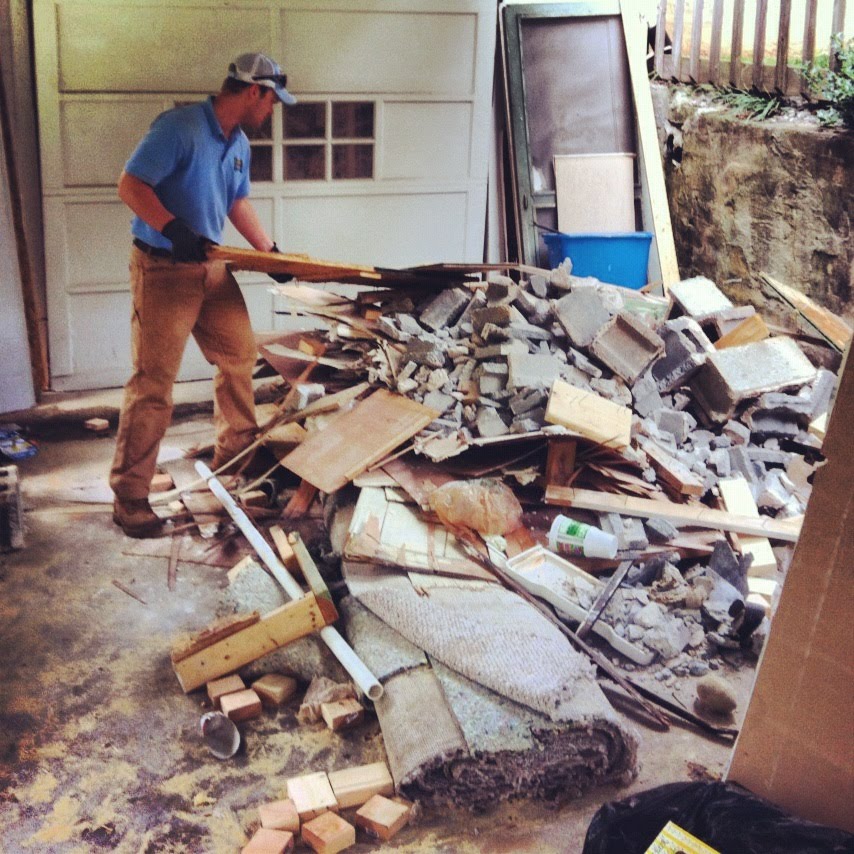
Renting a dumpster is one of the easiest ways to keep your construction project organized and running smoothly. From handling debris to making haul-offs more efficient, the right rental company can save you time, stress and money. Before you commit, it’s worth knowing what to look for in a provider.
12 Tips to Find the Best Construction Dumpster Rental
When you need a dumpster for a construction project, it’s important to choose the right company. Here are some tips to make sure you’re getting the best service and value for your money.
1. Do Your Research
Not all dumpster rental companies are created equal. Make sure you’re doing your homework to find a company that’s reputable and has a good track record. Ask around for recommendations from friends or family, or search online for reviews. This way you can be sure you’re getting a company that’s reliable and will provide good service. Ask specifically about recent construction projects similar in scope to yours and whether the provider met timelines and handled haul-offs without surprise fees.
2. Ask About Pricing
Dumpster rental pricing can vary depending on the company, so it’s important to get quotes from several providers. This way you can be sure you’re getting the best value for your money. Request an all-in quote that lists delivery, pickup, rental period, disposal, fuel, out-of-area, weight limit and overage fees so you can compare fairly.
3. Make Sure the Company is Licensed and Insured
This is important in case anything goes wrong during the rental process. You want to be sure the company you’re working with is licensed and insured in case of accidents or damages. Verify they carry the proper state or municipal permits for waste transport and can provide a certificate of insurance upon request.
4. Ask About the Company’s Policies
Some companies may have different policies regarding how long you can keep the dumpster or what you can put in it. It’s important to be aware of these before you rent so you can follow the rules. Confirm prohibited materials, weight limits, rental periods, extension fees and whether a permit is required for street placement or work near waterways.
5. Compare Prices
Once you’ve narrowed down your options, it’s time to start comparing. Don’t just go with the first company you find. Compare size-for-price, not just headline rates, and match the dumpster to your debris volume so you’re not paying for unused space or incurring overages.
6. Ask About Extras
Some dumpster rental companies offer additional services, such as delivery and pickup. If you think you might need these, ask up front so you can budget accordingly. Ask about scheduling flexibility, same-day or next-day availability, Saturday service and swap-outs if your project generates more debris than expected.
7. Get Everything in Writing
Once you’ve found the right company and you’re ready to make your reservation, get everything in writing. This includes the price, date and time of delivery and any other important details. Include the rental window, included tonnage, cutoff times for pickup, site placement instructions and any damage or contamination charges.
8. Be Prepared
When the dumpster arrives, have your construction debris ready. This makes it easier for the driver and helps you avoid unnecessary fees. Choose a placement spot with clear truck access, at least 12 feet of vertical clearance and enough room to maneuver. Keep the area free of vehicles and equipment.
9. Be Respectful
Remember that you’re renting the dumpster from a company, not a friend. Treat the property and equipment with respect to avoid damage fees. Protect driveways with plywood if needed, avoid moving the container yourself and keep lids closed to prevent windblown debris.
10. Follow the Rules
Be sure to follow the company’s rules and regulations for use. This includes not overloading the dumpster, not putting hazardous materials inside and not keeping it longer than the rental period. Distribute weight evenly, never load above the rim, keep children and pets away, and call for a swap or pickup before your rental time ends.
11. Right Size and Type Matter
Match dumpster size to your project scope — 10-yard for small remodels, 20–30-yard for larger renovations or demo. Roll-off containers are standard for construction, while front-load or rear-load styles are more common for ongoing commercial service.
12. Know Local Rules
Some cities restrict where a dumpster can be placed, require permits for street placement or set setbacks from lakes, rivers and storm drains. Checking regulations ahead of time helps you avoid fines and delays.
By following these tips, you can be sure you’re choosing the right dumpster rental company for your needs. With a little research, you can find a great company that provides the service you need at a price you can afford.
